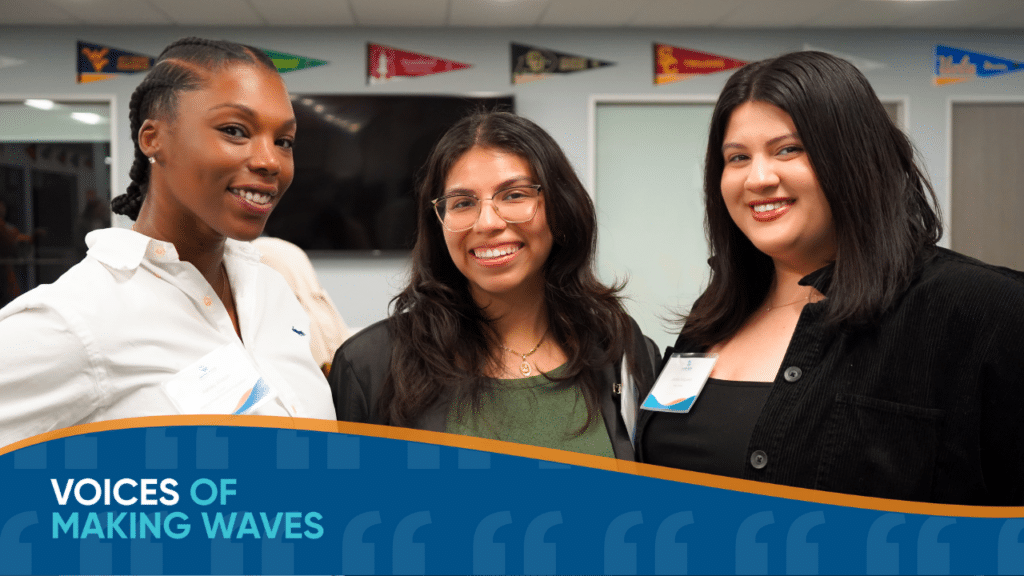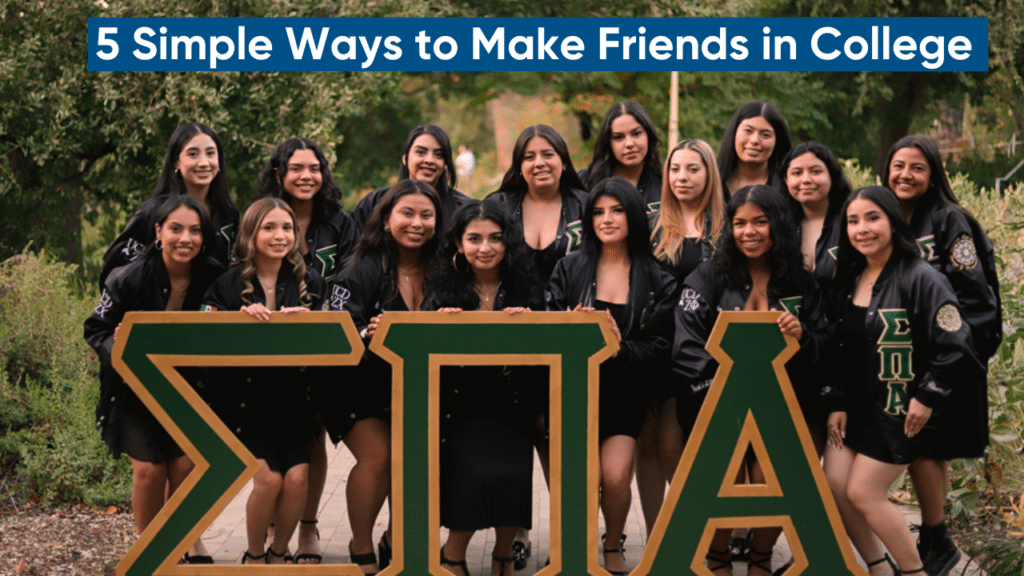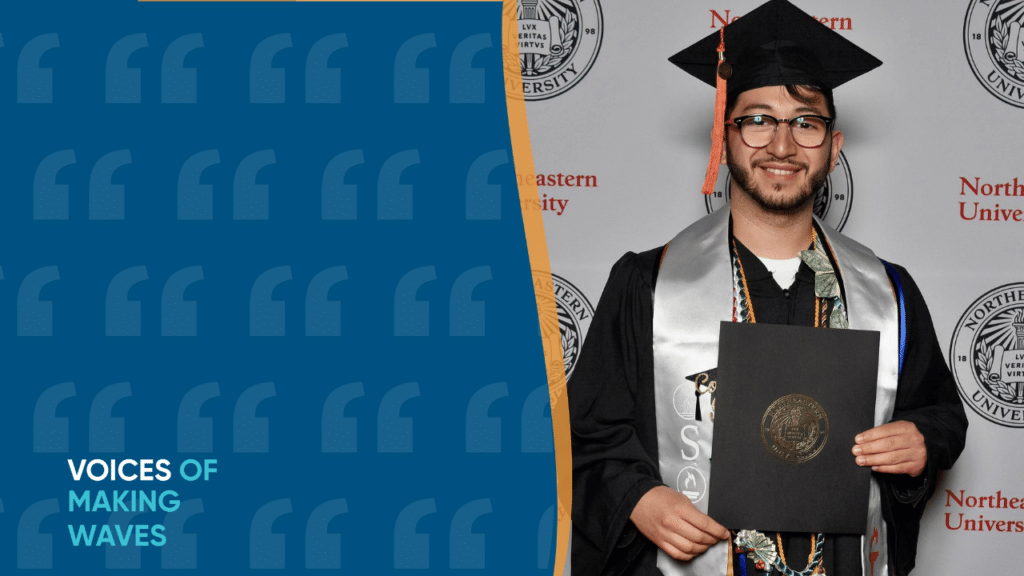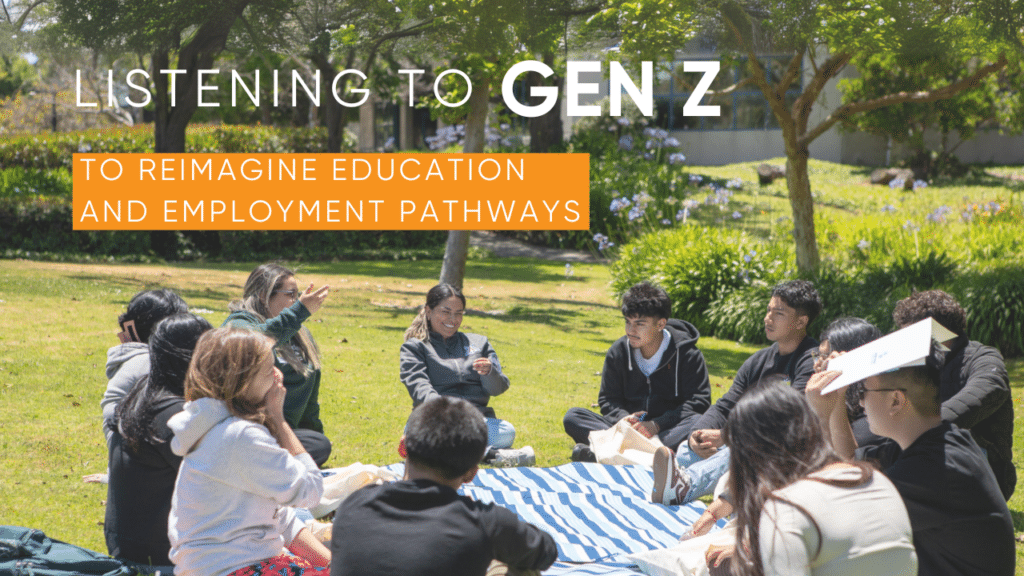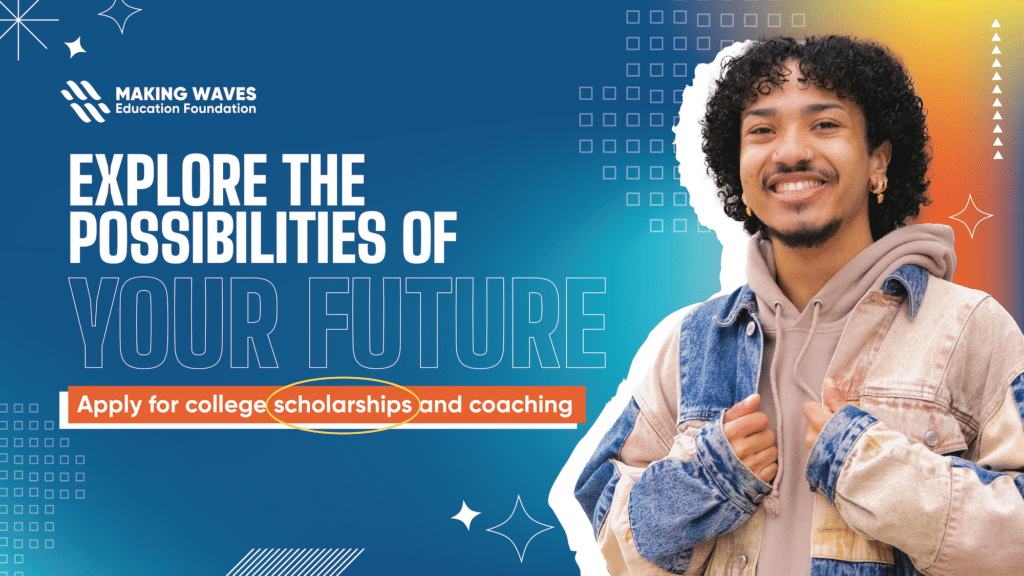
College Scholarships and Coaching for Bay Area Students: Application Open!
by Making Waves Education Foundation
Thanks to new donation, Making Waves is seeking students with passion and perseverance to join college and career success program
| QUICK SUMMARY |
|---|
| Making Waves college and career success program open to all Bay Area counties thanks to new donation |
| Students get up to $20k each over up to five years – plus a college coach, financial coordinator, and career specialist |
| All parts of the multi-step application must be completed by February 26, 2024 |
| Making Waves seeks students with self-awareness, passion, and perseverance |
Making Waves Education Foundation partners with students of color, students from low-income backgrounds, and first-generation college students so college is affordable and graduation is attainable.
Thanks to a new $300,000 donation, Making Waves’ college and career success program – which provides scholarships, college and career coaching, and financial planning support – is now open to all nine Bay Area counties.
“We want to support more students to earn their college degrees, to be able to afford it, and to graduate with no debt,” shared Making Waves Education Foundation CEO Patrick O’Donnell.
Up to twenty students will receive up to $20,000 each in funding over a maximum of five years and enroll in Making Waves’ college and career success program.
The Bay Area opportunity is open to high schoolers from low-income backgrounds from Alameda, Contra Costa, Marin, Napa, San Francisco, San Mateo, Santa Clara, Solano, or Sonoma counties.
A personalized application to match a personalized program
Making Waves has a multi-step and intentional application process, designed to get a holistic view of students’ experiences, knowledge, and skills – and to match Making Waves’ overall program approach.
“When we say holistic application and selection process, we mean we are looking for students’ strengths across multiple criteria,” shared Aiyana Mourtos, chief program officer at Making Waves. “And we provide students multiple avenues to share those with us – through writing, speaking, and recommendation letters.”
The first step of the application confirms student eligibility. The next steps seek a recommendation letter, written responses, and video submissions through which students can showcase their strengths, passions, and priorities.
| WRITING AND VIDEO PROMPTS AT A GLANCE |
|---|
| Across the core values of future plans, academics, health/wellness, friends, family, fun, personal space, money, which is most important to you and why? |
| What’s your top choice school and which campus resource do you see yourself using the most and why? |
| What’s the purpose behind your decision to attend college? What are your hopes and/or goals for working towards/receiving your degree? |
| How could you most benefit from the college coaching, financial literacy, and career preparation support from our program? |
| What are you most worried or excited about when it comes to college? |
| What is a goal you set that didn’t go as planned? How did you recover from any setbacks or obstacles? |
Seeking students with passion and perseverance
“At Making Waves, we are interested in students’ level of commitment and their personal ‘why’ for pursuing college,” shared Mourtos. “We’re looking for students demonstrating passion and perseverance for their goals – whatever those goals may be!”
Unlike many scholarships that are based on academics, Making Waves welcomes students from across academic majors and maintains a 2.0 GPA minimum since that is typically required for college applications.
“We’re looking for students whose academic transcript might not be all As and Bs, but behind it is a story of how they navigated and persevered through a challenge,” Mourtos shared.
Drawing from best practices to advance educational equity
Founded more than 30 years ago, Making Waves has been iterating on its approach based on best practices.
For example, according to research from the National Postsecondary Student Aid Survey, compiled by Scholarship America and the Common App, on average, students in the top quartile of family income receive 203% more in private scholarships than students in the bottom quartile. Moreover, their assessment shows, each year, billions of dollars in scholarships are given based on academic, extracurricular, and athletic achievements.
“This leads to an unmet need,” shared O’Donnell. “Students from low-income backgrounds who are a) prepared for college but b) have lower GPAs and test scores need access to scholarships so they can afford and attend college.”
“We take our program a step further in evaluating students on their strengths, in addition to GPAs and test scores. Based on our learnings, we know students with a range of GPAs and test scores can absolutely attend and excel in college,” he shared.
Continually improving
Making Waves’ approach is also guided by what the team has learned from its college and career success program that supports students from Making Waves Academy, a public charter school in Richmond, and students from high schools across the Bay Area.
“With graduates from Making Waves Academy, we have seen that students with various academic profiles can be successful in college when they have a clear sense of purpose and the right supports, like the supports we provide,” shared Mourtos.
“We also used to offer a program to Bay Area students that was primarily based on academic merit and financial need, but we recognized the need to support a broader subset of students and have greater impact,” she said.
“Providing scholarships to a broader range of students leads to a bigger impact in terms of overall college attendance and completion outcomes,” O’Donnell added.
Comprehensive support system for students
The Making Waves program offers more than just money for college. In addition to the scholarship, students gain a support system of college coaches, financial coordinators, and career specialists.
Students partner with the Making Waves team to reflect on their experiences and chart a path toward their goals. Participants graduate from college and land jobs at twice the rate of their peers – and 85% earn their college degrees without any student loans.
“We’re looking for students who are a good fit for our program given its comprehensive nature,” shared Mourtos. “Our work is a partnership with students, so we want to be clear about our commitment as well as their commitment. This requires a level of self-awareness and interdependence.”
Support covers academics, career development, financial aid and budgeting, campus community, and wellness. This can range from financial planning to choosing courses to exploring identities to transitioning to a job after college.
“This is where self-awareness and interdependence come into play. To really benefit from this support system, students have to want to engage in reflection about their experiences to help them grow.”
Apply by February 26, 2024!
To apply for the Bay Area program, students must sign up for the Making Waves college and career chatbot, follow Making Waves on TikTok, and complete an application. The multi-step application process is open January 15 and all parts of the application must be submitted by February 26, 2024.
About Making Waves Education Foundation
At Making Waves, we are committed to educational equity. Making Waves Education Foundation is a Bay Area nonprofit that supports Making Waves Academy – a public charter school with more than 1,100 5th through 12th grade students – and leads college and career programming with more than 430 college students.
Knowing the opportunities that come with a college degree, we partner with historically underrepresented and underserved students to help make college affordable and graduation attainable. Centering the journeys of our students, our personalized approach includes college and career coaching, scholarships, and financial planning.
Our alumni network includes more than 730 college graduates, who earn their degrees and land jobs at more than twice the rate of their first-generation, low-income peers, with 85% graduating debt-free.

